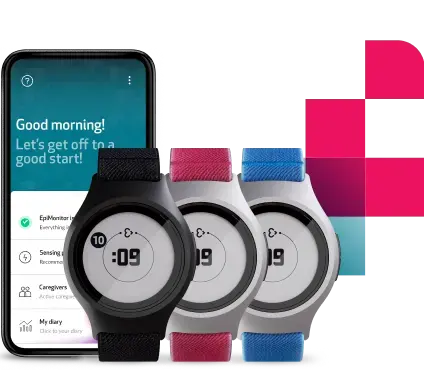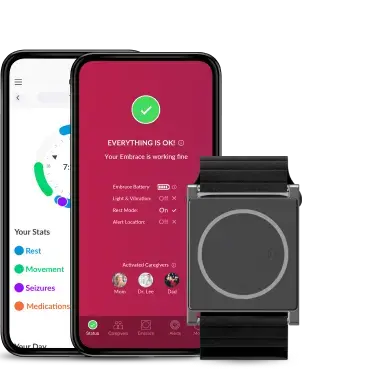Partnering with BARDA to seek FDA approval of our COVID-19 early detection system
We are proud to announce that Empatica has once again joined forces with BARDA to validate and release our proprietary COVID-19 early detection algorithm using our wearable technology.
Back in 2018, we started collaborating with the Biomedical Advanced Research and Development Authority ("BARDA"), part of the Office of the Assistant Secretary for Preparedness and Response at the U.S. Department of Health and Human Services (HHS), to develop a respiratory infection prediction algorithm and wearable.
The new initiative builds on the extremely positive findings of our initial work with BARDA, and will now aim to validate Aria, Empatica’s COVID-19 early detection system, by running a study with the participation of healthcare workers. The goal is to seek FDA approval, so that Empatica Aria can soon be used as a medical product for people at risk of contracting COVID-19, and help millions of citizens return to normal life safely.
The validation study: Ensuring the highest ground truth
The study will involve the continuous monitoring of the physiology of healthcare workers who are caring for COVID-19 patients, and compare their results against daily swabs. This will ensure that Empatica’s proprietary algorithm is validated against ‘gold standard’ measurements, thus reinforcing its accuracy. The algorithm will be continuously analyzing the physiological data collected using our E4 smartband, and identify patterns in the data that suggest the presence of an infection, even without any symptoms manifesting.
Why detecting COVID-19 before symptoms appear can be crucial
Early detection can protect frontline workers, prevent spread and improve the overall public health response as lockdowns ease globally. Recent estimates by CDC [1] suggest that 35% of infections are asymptomatic, making contact tracing and containment of the virus a challenge.
The most infectious period could be 1 to 3 days before symptoms start [2], so even those patients who eventually display symptoms can still infect their family, colleagues, and other people they interact with, before realizing they are ill. Digital biomarkers like Aria can help efficiently triage patients, enabling more effective care and prioritization of cases, and potentially even save lives.
Empatica Aria: Round-the-clock safety for all
Aria is completely noninvasive, utilizing Empatica’s medical smartwatches, software, and artificial intelligence capabilities. It will enable continuous and real-time insight into the likelihood of SARS-CoV-2 infection before symptoms present, and send a warning to the user and their healthcare provider.
This continues the work done to launch Care, our AI-driven remote health monitoring platform. Empatica Care was built for the urgent remote monitoring needs highlighted by the pandemic, and leverages our existing industry-standard technology to provide hospital staff and caregivers with real-time and historical information on patient vitals, including respiratory rate, pulse rate, and peripheral temperature. This can play an important role in identifying deterioration in someone’s health, enabling early intervention and better outcomes.
The Aria system works as an add-on to the Care platform and displays an output on the online dashboard, to indicate whether an individual wearing an Empatica wearable (the CE marked EmbracePlus) has a high or low risk of developing a respiratory infection. It will inform the wearer each day if their risk of infection is high, so they can stay at home, avoid contact with people outside their household, and reach out to their healthcare provider.
As a digital healthcare company that specializes in enabling the continuous monitoring of people’s health via wearables, algorithms, and custom biomarkers, we felt it was our duty to join the battle against COVID-19 by utilizing our technology and expertise. Sign up to our newsletter to stay in the loop about the outcomes of the study, or reach out to us via care@empatica.com or through this form to find out more about Aria and Empatica Care.
References:
[1] https://www.cdc.gov/coronavirus/2019-ncov/hcp/planning-scenarios.html
[2] https://www.acpjournals.org/doi/10.7326/M20-0504
Words worth reading
We do not guarantee that EpiMonitor will detect every single seizure and deliver alerts accordingly. It is not meant to substitute your current seizure monitoring practices, but rather to serve as a supplement in expediting first-response time.



